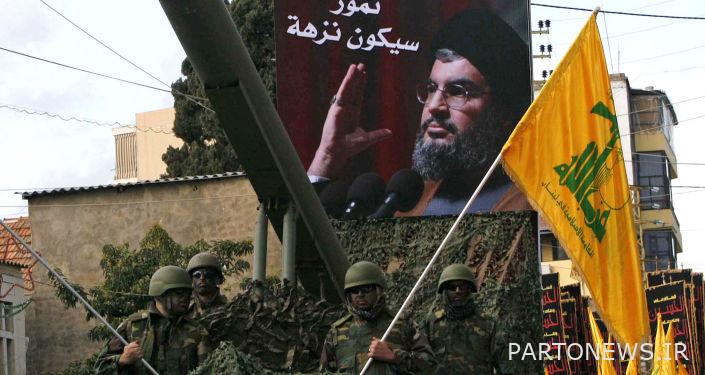Hezbollah supported the Lebanese Minister of Information

https://cdnn1.img.ir.sputniknews.com/images/589/95/5899561.jpg
Sputnik Persian
https://ir.sputniknews.com
Sputnik
https://ir.sputniknews.com

https://ir.sputniknews.com/near_east/202111048441197-%D8%AD%D8%B2%D8%A8-%D8%A7%D9%84%D9%84%D9%87-%D8%A7%D8 % B2-% D9% 88% D8% B2% DB% 8C% D8% B1-% D8% A7% D8% B7% D9% 84% D8% A7% D8% B9-% D8% B1% D8% B3% D8% A7% D9% 86% DB% 8C-% D9% 84% D8% A8% D9% 86% D8% A7% D9% 86-% D8% AD% D9% 85% D8% A7% DB% 8C% D8% AA-% DA% A9% D8% B1% D8% AF /
Hezbollah’s parliamentary faction spoke on Thursday in defense of Lebanese Information Minister George Qardahi.
According to Sputnik, Hezbollah’s parliamentary faction spoke on Thursday in defense of Lebanese Information Minister George Qardahi, who found himself at the center of a diplomatic scandal between Beirut and the Gulf Arab kingdoms.
A statement issued by Al-Mayadin said that Qardah’s remarks about Saudi policy in Yemen prior to his appointment as minister could not be used as a basis for widespread retaliation. “The crisis was inspired by Saudi Arabia and aimed at exerting external pressure on Lebanon,” the document said.
Rejecting Riyadh’s stance, Shiite representatives expressed solidarity with the minister, who gave a “correct assessment of the senseless war waged by Saudi Arabia against the Yemeni people.”
On August 5, Qardahi defended Yemeni Houthi rebels, who he said opposed unjust and inhumane aggression, while appearing on Al-Jazeera television (prior to his appointment as minister). The remarks were repeated the next day by a number of local media outlets, sparking a diplomatic riot.
Riyadh called Qardahi’s remarks insulting and distorting the monarchy’s position in support of the legitimate Yemeni government. Officials in Saudi Arabia, Bahrain, Kuwait and the United Arab Emirates expelled Lebanese ambassadors and recalled their diplomats from Beirut.
“There is no crisis between the Gulf states and the Lebanese government,” Saudi Foreign Minister Prince Faisal bin Farhan al-Saud told Al-Hadas TV. According to him, the problem is that Lebanon is under the hegemony of Iranian agents. “Hezbollah and its allies have complete control over the Beirut government, so interacting with Lebanon until it returns to its original position in the Arab world is completely meaningless,” he said.
Of the six members of the Gulf Cooperation Council, only the monarchies of Oman and Qatar refused to put pressure on Beirut. The Omani Foreign Ministry called on both sides to “show restraint and take measures to resolve the crisis on the basis of mutual respect and non-interference in internal affairs.”

